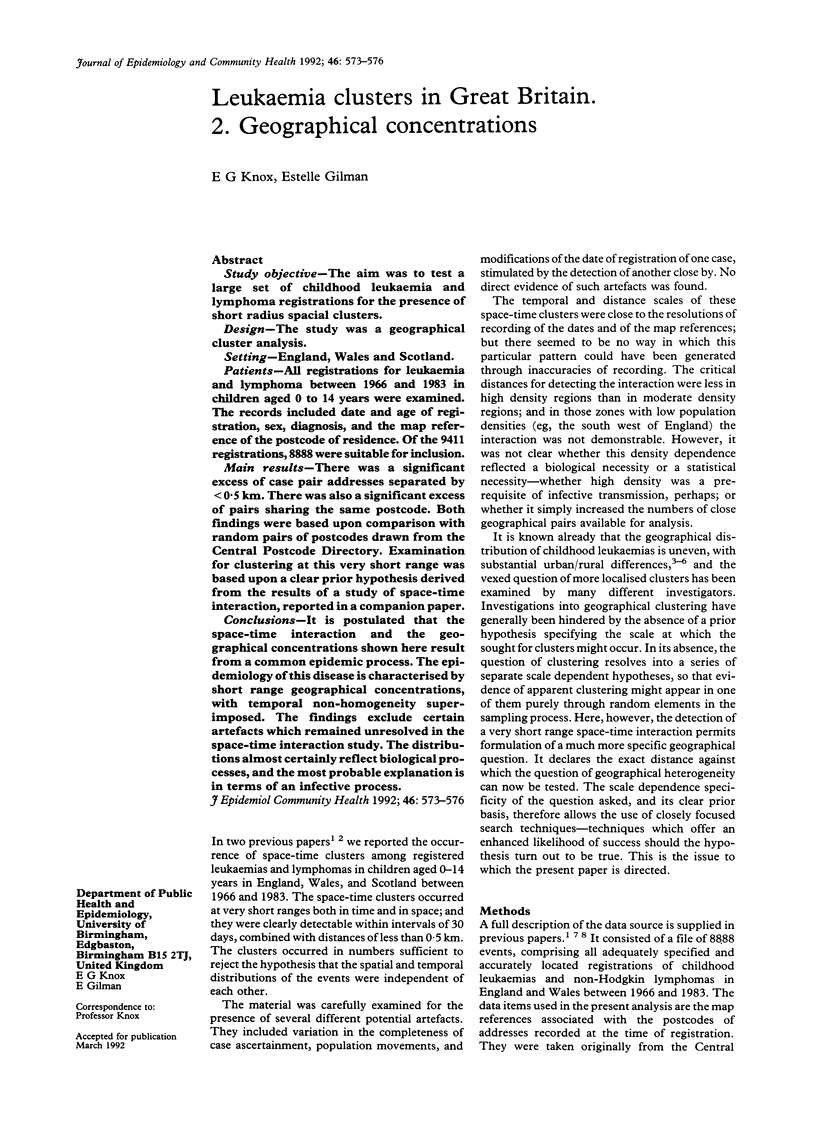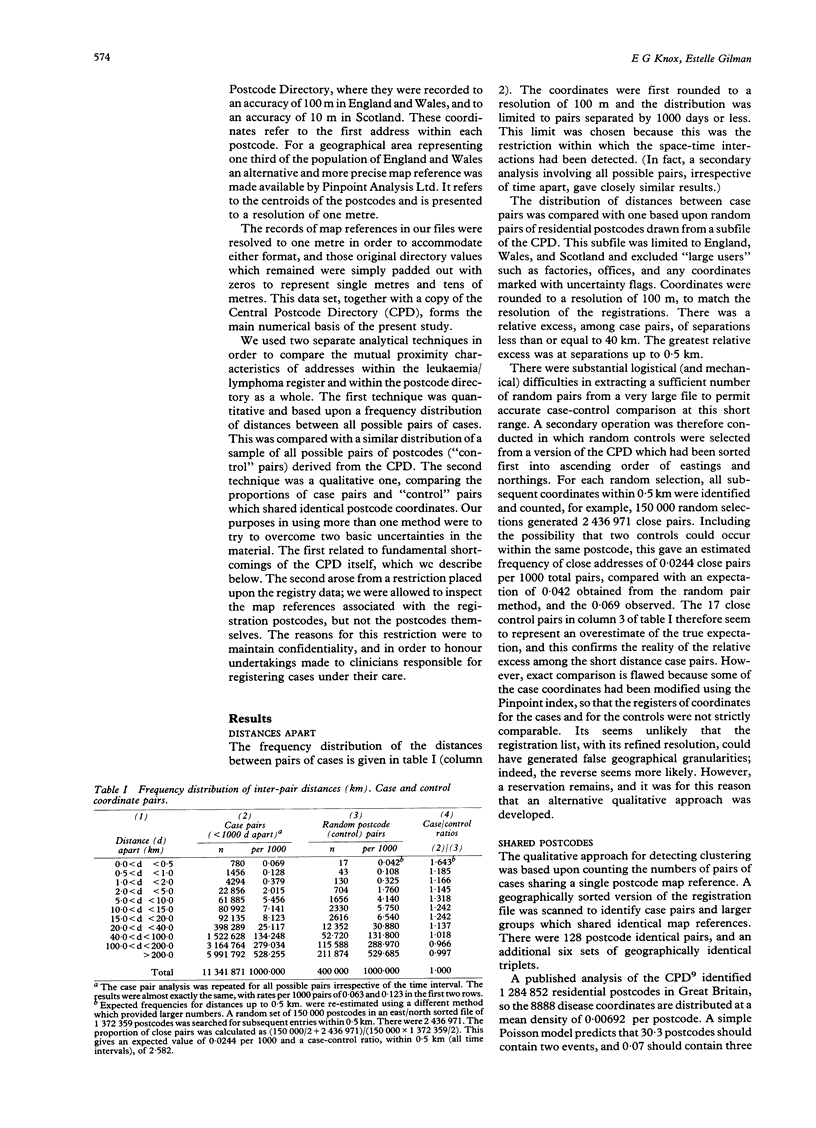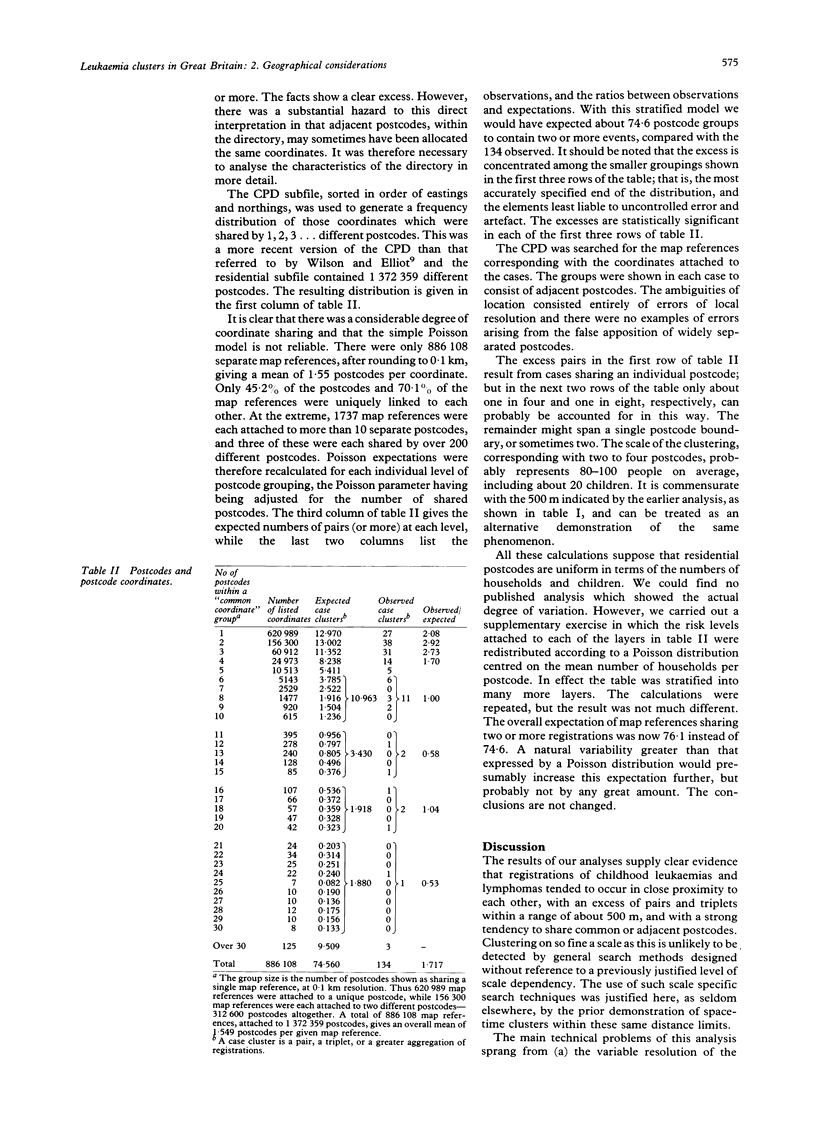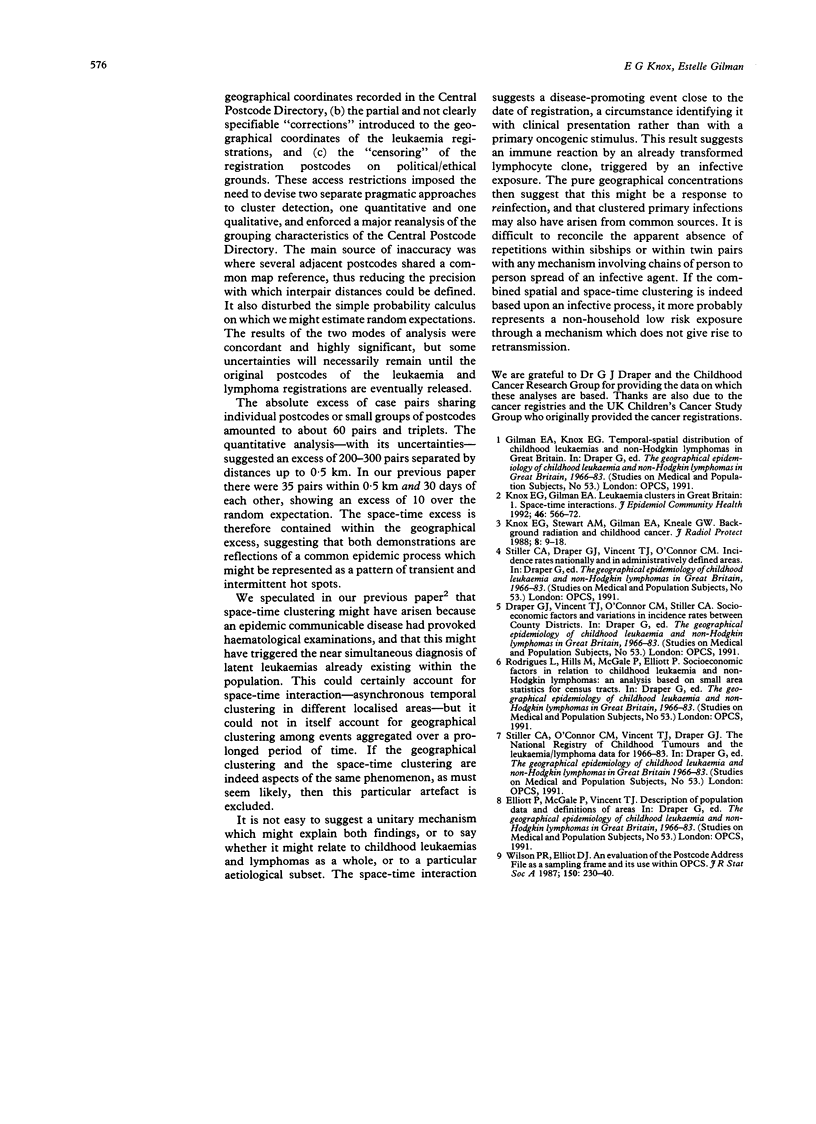Abstract
STUDY OBJECTIVE--The aim was to test a large set of childhood leukaemia and lymphoma registrations for the presence of short radius spacial clusters. DESIGN--The study was a geographical cluster analysis. SETTING--England, Wales and Scotland. PATIENTS--All registrations for leukaemia and lymphoma between 1966 and 1983 in children aged 0 to 14 years were examined. The records included date and age of registration, sex, diagnosis, and the map reference of the postcode of residence. Of the 9411 registrations, 8888 were suitable for inclusion. MAIN RESULTS--There was a significant excess of case pair addresses separated by < 0.5 km. There was also a significant excess of pairs sharing the same postcode. Both findings were based upon comparison with random pairs of postcodes drawn from the Central Postcode Directory. Examination for clustering at this very short range was based upon a clear prior hypothesis derived from the results of a study of space-time interaction, reported in a companion paper. CONCLUSIONS--It is postulated that the space-time interaction and the geographical concentrations shown here result from a common epidemic process. The epidemiology of this disease is characterised by short range geographical concentrations, with temporal non-homogeneity superimposed. The findings exclude certain artefacts which remained unresolved in the space-time interaction study. The distributions almost certainly reflect biological processes, and the most probable explanation is in terms of an infective process.
Full text
PDF



Selected References
These references are in PubMed. This may not be the complete list of references from this article.
- Knox E. G., Gilman E. Leukaemia clusters in Great Britain. 1. Space-time interactions. J Epidemiol Community Health. 1992 Dec;46(6):566–572. doi: 10.1136/jech.46.6.566. [DOI] [PMC free article] [PubMed] [Google Scholar]


